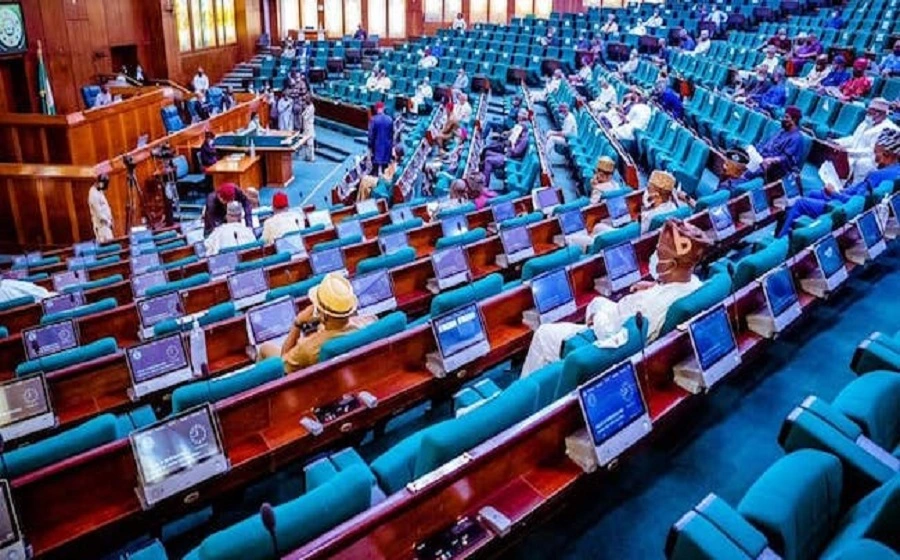Constitution Review: Kalu Seeks Australia, Rwanda Collaboration on Mining Reforms, Gender Equity, Security - THISDAYLIVE
•Assures re-evaluation of capital punishment to align with IHRL standards
The Deputy Speaker of the House of Representatives, Rt. Hon. Benjamin Okezie Kalu, has advocated collaboration with the governments of Australia and Rwanda to bolster Nigeria’s initiatives in increasing women’s participation in governance, enhancing national security, and strengthening the mining sector, among other areas.
Kalu, who also chairs the House Committee on Constitution Review, made this appeal during separate engagements with delegations from the Australian and Rwandan embassies in Nigeria.
The meetings, led by Australian High Commissioner, Leilani Bin-Juda, and Rwandan Ambassador, Christophe Bazivamo, took place at the National Assembly on Wednesday in Abuja.
In his remarks to the Australian delegation, Kalu emphasized Nigeria’s rich deposits of natural resources, noting that the mining industry offers immense prospects for economic expansion and national development.
He acknowledged Australia’s vast experience in mining and resource management, and called for cooperation in adopting best practices, technological advancements, and sustainable methods for responsible mineral extraction in Nigeria.
Kalu also encouraged continued Australian support for Nigeria’s pursuit of gender equality and the protection of human rights, particularly within the ongoing constitutional review process.
He expressed hope that Australia’s success in advancing women’s rights could serve as a valuable guide as Nigeria seeks similar progress.
During the meeting, Kalu informed the Australian team about ongoing national discussions on the re-examination of capital punishment laws.
He described the issue as complex and emphasized the need for thoughtful dialogue, highlighting that any alternatives must align with global human rights standards while also considering the perspectives of Nigerians.
He further stated that Nigeria aims to foster a conducive climate for foreign investment, ensuring that local communities also benefit from mining activities.
By partnering Australian mining firms, he said, Nigeria could spur job creation, stimulate local economies, and ensure its resources support national development.
On constitutional review, Kalu noted that significant amendments are underway, particularly the Gender Bills such as HB.1349, which proposes reserved seats for women in legislative institutions.
He described the bill as vital for improving female representation and achieving gender balance in political leadership.
Addressing the Rwandan delegation, Kalu called for deeper ties between Nigeria and Rwanda, pointing out their shared goals of promoting peace, stability, and development in their regions.
He highlighted the longstanding relationship between the two countries, marked by mutual respect, and emphasized the need to expand inter-parliamentary relations.
Stronger legislative dialogue, he said, would allow both nations to shape policies that drive economic and social progress, as well as cultural exchange.
Adding that Nigeria’s constitutional review process could benefit from Rwanda’s insights, especially on gender and security issues.
He commended Rwanda’s exceptional record in gender representation in politics, where women occupy 63.75% of seats in the Chamber of Deputies and 53.8% in the Senate – the highest globally – which he said Nigeria could learn from.
Earlier, Australian High Commissioner Leilani Bin-Juda reaffirmed her country’s broad interests in Nigeria, particularly in sectors like mining, trade, and investment.
She expressed admiration for Nigeria and stated that productive high-level discussions with the Ministry of Foreign Affairs had taken place in January, with plans underway to launch a joint mining project with the Ministry of Mines and Steel in the coming weeks.
In his remarks, Rwandan Ambassador Christophe Bazivamo said the purpose of his visit was to explore ways to reinforce institutional connections between the two countries’ legislative bodies.
He proposed cooperation in areas such as oversight functions, drafting of laws, incorporating innovation and technology into parliamentary work, and the formation of a Nigeria-Rwanda parliamentary friendship group.












